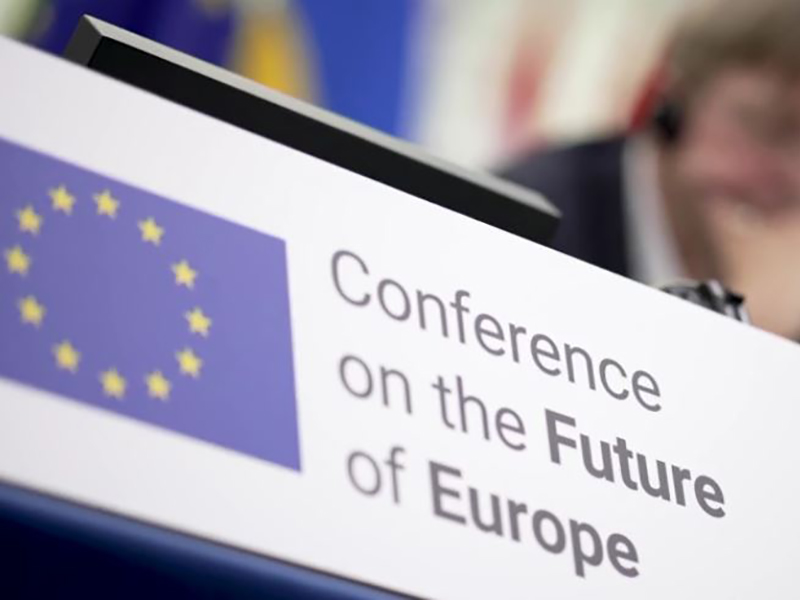Conference on the Future of Europe

Related topics
Capital Markets Uniondate: 17/06/2022
The Conference on the Future of Europe, which began in April 2021, came to an end on 9 May – Europe Day – with a closing ceremony in Strasbourg. The conference was a citizen-led series of debates and discussions, which had the aim of allowing people from across Europe to look at the medium- to long-term future of the EU and consider which reforms should be made to its policies and institutions.
How was the Conference organised?
It is the first time that such a major pan-European democratic exercise has been organised. The conference relied on an innovative Multilingual Digital Platform where any European could share ideas, and both national and European Citizens' Panels.
And it was a success: by May 2022, the platform had received close to 5 million unique visitors and over 50,000 active participants had taken part in 18,000 debates and over 6,500 registered events.
The ideas collected were then discussed in the Conference Plenaries, where citizens’ representatives worked on equal footing with representatives from the European Parliament, the Council, the European Commission and the national parliaments of the EU’s Member States.
Why organise such a conference?
The Conference on the Future of Europe was part of Commission President Ursula von der Leyen’s pledge to give Europeans a greater say on what the EU does and how it works for them. It aimed to reflect the EU’s diversity, and to bring Europe to every corner of the EU – not just its capital cities.
Young people in particular were encouraged to take part and share their ideas. European, national, regional and local authorities, as well as civil society and other organisations organised events to involve as many people as possible.
What was the outcome?
During the closing ceremony, President von der Leyen, President of the European Parliament Roberta Metsola, and French President Emmanuel Macron received the final report on the outcome of the Conference. The report included 49 proposals and over 300 concrete measures, grouped under nine topics: climate change and the environment; health; a stronger economy, social justice and jobs; EU in the world; values and rights, rule of law, security; digital transformation; European democracy; migration; and education, culture, youth and sport.
The conference has shown that new policies and, in some cases, Treaty changes, are necessary. Not so much as means in themselves, but in the interests of all Europeans, to reshape the EU in a way that will guarantee its open strategic autonomy, security, sustainability and competitiveness, the improvement of living and working conditions, and respect for the rule of law and fundamental rights.
What happens next?
When they spoke at the Conference’s closing event, the presidents of the European Commission, the Council and the European Parliament expressed their full commitment to act on the citizens’ recommendations. The three institutions are now examining how to follow up effectively on the proposals.
Already before the end of the conference, on 4 May, the European Parliament passed a resolution calling for a Convention for the revision of the Treaties. The Commission will respond in June on the immediate follow-up, and President Von der Leyen will announce further proposals in her State of the Union speech in September.
President Macron also underlined the need for Treaty change and supported the Parliament’s call for a Convention. He suggested that the Council in June should start discussing a revision of the Treaties, including unanimity, electoral law and right of initiative for the Parliament.
